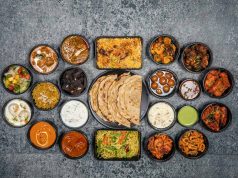Let’s begin with a question that is so common.
Question: I understand that … when the food is cooked, all the bacteria are killed … Hence, do I need to even worry about my cooked food?
Answer: As a matter of fact, the possibility of bacterial growth actually increases after cooking, with the drop in temperature wherein you invite the bacteria to thrive.
So, food poisoning is actually a big deal? Yes it is, for even in the U.S., about one in six persons gets sick from food poisoning each year.
Let’s examine some of our common habits.
- Don’t we taste food to check if it is still okay, safe?
- Don’t we smell food to see if it is good?
- We are still not clear about washing our hands?
Let us not go into what our governments and food agencies do to prevent illness or contamination. We, at our places, must attempt to control any food-borne outbreak.
Realise that there are so many steps involved before our food reaches the dinning tables, from the farm or fishery. Thus, contamination can occur anywhere – during production, processing, distribution, or preparation.
Aren’t we aware that many a times our fields are sprayed with any water … even contaminated … and thus fruits and vegetables can be contaminated even before harvest!
Don’t we use just any kind of ice to wash, pack, or chill fruits or vegetables? Contamination can spread then and there.
Don’t we use a knife to cut raw meat or egg and then use the same knife without washing it to slice vegetables? The vegetables can be contaminated right there.
This problem is serious, serious than you may realise. Food poisoning sends thousands of us to the hospital each year. Should it be mentioned that it can also have long-term health problems? Yes.
Be alarmed. Some types of food poisoning can also lead to kidney failure, chronic arthritis, brain and nerve damage, and even death.
Must you understand that food poisoning (also known as food-borne illness or food-borne disease) is an illness that results from eating contaminated food.
Harmful bacteria are the most common cause of food poisoning, but other causes include viruses, parasites, toxins and contaminants.
Certain groups of people are more susceptible to food-borne illness. They include –
- Pregnant women
- Older adults
- Persons with chronic illnesses
Follow four basic steps to prevent food poisoning
- Clean – Wash hands and surfaces often (for 20 seconds with soap and running water)
- Separate – Keep meat, poultry, seafood, and eggs separate from all other foods
- Temperature – Cook to the right temperature
- Storage – Refrigerate perishable foods promptly
We understand that you’re washing your fruits and veggies — even when you are going to peel them off. We also believe you will do your best to serve your families food that’s safe and healthy.




















